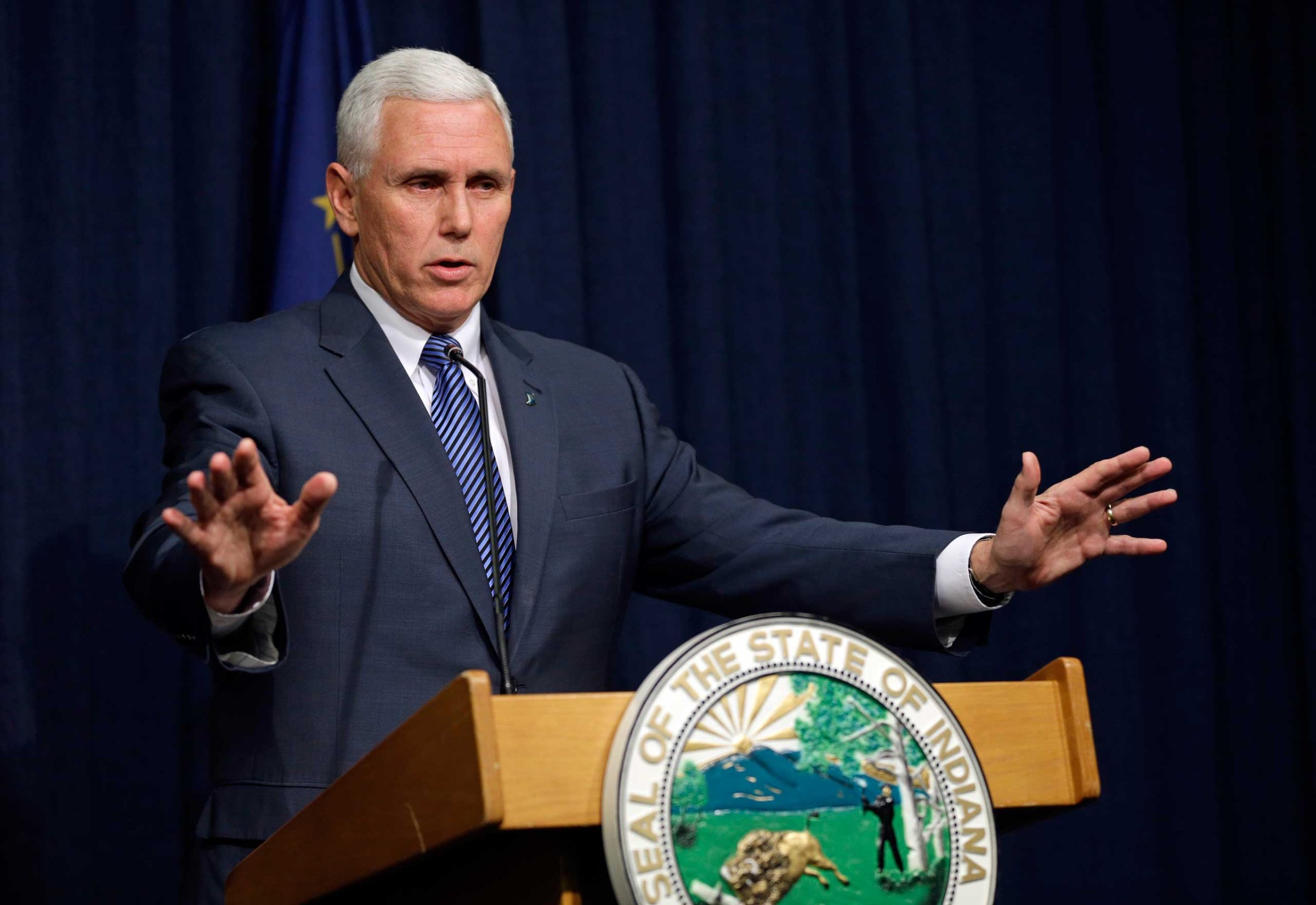
Rauch, a National Magazine Award winner, is a Senior Fellow in Governance Studies at the Brookings Institution.
You gotta feel bad for Mike Pence. The Republican governor of Indiana signs a religious-freedom bill. It’s only a bit more capacious than a long-established federal law, the 1993 Religious Freedom Restoration Act. It’s only a bit more sweeping than similar laws in 19 other states. And yet half the world comes screaming down on Indiana’s head. Who could have imagined?
Only anyone who reads the news. Perhaps Pence missed the news that Arizona’s legislature passed a similar law (ultimately vetoed by the governor) in 2014 and got exactly the same national firestorm by way of reaction.
The problem with Indiana’s new religious-freedom law, and for that matter with Arizona’s proposed law and with similar legislation advancing in other states, isn’t what’s written in the statute; it’s the intent with which the statute was written. The laws are now seen, not inaccurately, as targeting gay and lesbian Americans. As a result, religious freedom, once a cause that commanded broadly bipartisan support, is becoming tainted with the stain of discrimination. And that’s too bad — especially for friends of religious freedom.
When the federal Religious Freedom Restoration Act was enacted more than 20 years ago, it was about protecting, say, an Indian church that wanted to use peyote in a ceremony. No one’s ox was gored. Or what if someone wants to wear a yarmulke to work? Accommodating such requests, where possible, seemed only reasonable.
Then came LGBT rights and gay marriage, followed by religious conservatives’ realization that on both fronts they were losing the public argument. They decided that if they could not ban gay marriage in civil law, they could at least refrain from participating in it — which, in practice, might mean a commercial business would refuse service to a gay couple buying flowers for a same-sex wedding, or to a student group wanting a rainbow cake baked for Pride Day.
True, what’s written on the statute page in Indiana is not a blanket “license to discriminate.” The law provides a legal defense against discrimination claims, not immunity from legal action. And true, the law’s proponents generally say they want to discriminate against gay weddings, not gay people (though some have said they intend to do both).
But those caveats, while important, miss the point. Today, for the first time, Religious Freedom Restoration Act laws are being passed with the specific intent to discriminate against the specific needs of a specific group. That makes all the difference.
Even worse, Indiana, like most states, does not protect LGBT people from discrimination. One side has state protection for its lifestyle and values, the other side has zilch. As Robin Fretwell Wilson of the University of Illinois College of Law told Politifact.com: “If there’s a license to discriminate in Indiana, it’s the fact there’s an absence of a statewide law that makes a promise to the LGBT community.” It’s no wonder that to gay Americans and their allies, the outcome looks hostile, sinister, and outrageously one-sided.
Gay people, of course, see themselves as the losers when one-sided laws like Indiana’s pass. It is not they, however, who will pay the steepest price. No, that dubious honor belongs to the religious conservatives who have chosen this one-sided state strategy. By lobbying for businesses’ right to boycott gay customers, they are writing a suicide note to Americans under 30, whose first commandment is: Thou Shalt Not Discriminate. And by identifying religious-liberty protections with the intent to discriminate, they are demolishing the social consensus for the very accommodations they seek.
There’s a better path. We saw it taken in Utah just a few weeks ago. The state passed new religious-conscience accommodations, but they were tied to new gay-rights protections. Both sides walked away feeling more free to live according to the lights of their consciences. Both got a win and supported the outcome.
That win-win, negotiated model, not Indiana’s heads-I-win, tails-you-lose model, is the path to a social consensus that safeguards religious freedom. And in America, lest we forget, real civil-rights protections, the kind that last, come not from laws or courts but from consensus.
More Must-Reads from TIME
- Inside Elon Musk’s War on Washington
- Meet the 2025 Women of the Year
- The Harsh Truth About Disability Inclusion
- Why Do More Young Adults Have Cancer?
- Colman Domingo Leads With Radical Love
- How to Get Better at Doing Things Alone
- Cecily Strong on Goober the Clown
- Column: The Rise of America’s Broligarchy
Contact us at letters@time.com